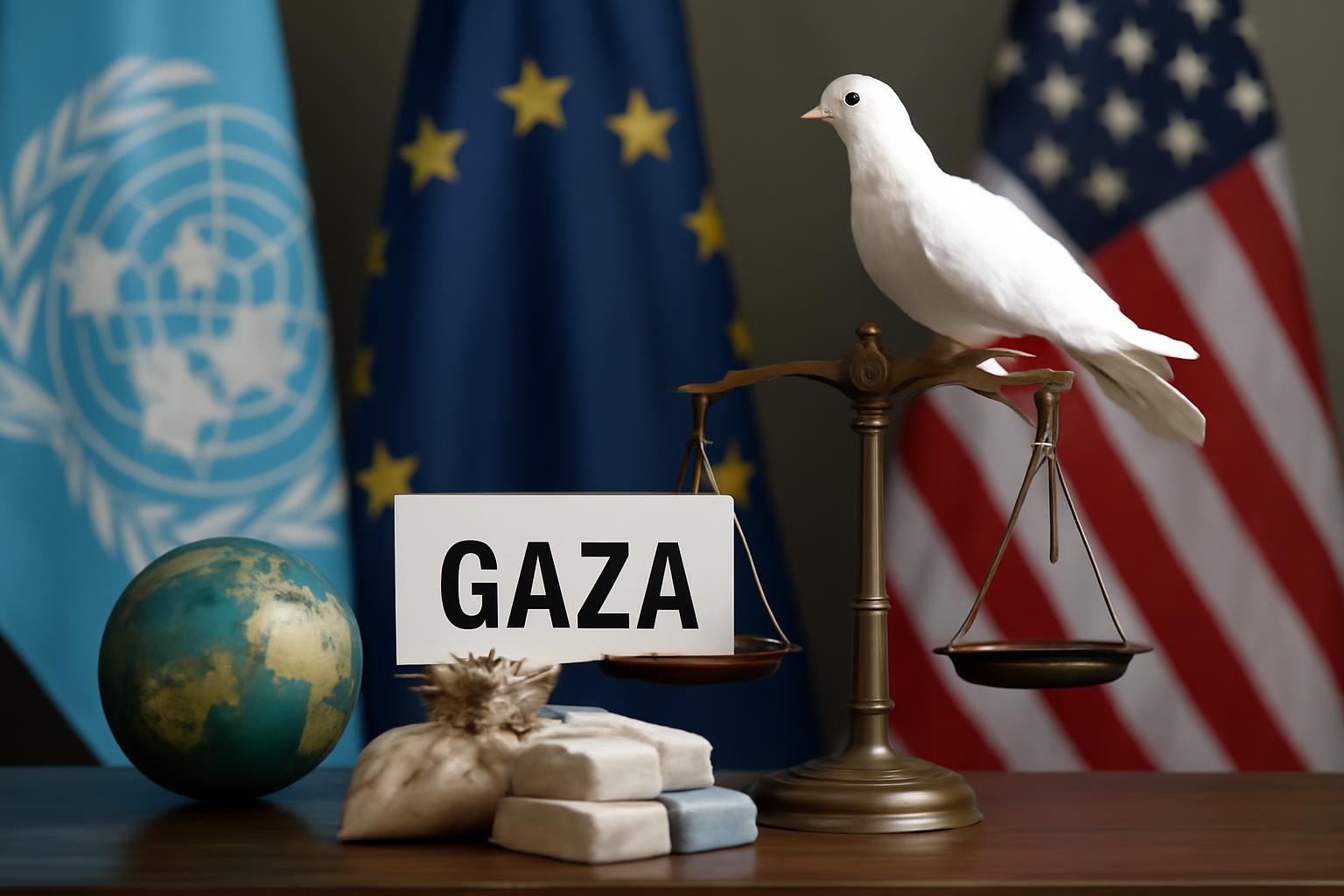International pressure on Israel has grown as more than twenty countries, spanning European Union members along with Japan, the United Kingdom, Canada, and Australia, have together urged an immediate halt to attacks and the unimpeded delivery of humanitarian aid to Gaza. They warn that the humanitarian crisis is unimaginable and that famine is spreading, pressing Israel to authorize all aid deliveries by international NGOs and to keep relief free of political wrangling. They call for a ceasefire that would enable hostages to be freed and aid to reach Gaza by land. Germany chose not to sign. As aid flows by land and air remain insufficient, roughly 2.4 million Gazans face general hunger. There is mounting anxiety that Israel’s plans to escalate operations and seize Gaza City could claim more civilian lives, while Prime Minister Netanyahu presents these actions as a component of the broader war against Hamas, which began with the October 7, 2023 attack. In parallel, Egypt, the United States, and Qatar are pushing a renewed 60-day ceasefire and hostage releases, proposing an unlimited and unconditional entry of humanitarian and medical supplies into Gaza, even as Hamas still holds dozens of hostages.
From the vantage of a thinker who prizes the limits of power and the primacy of ordered liberty, this moment reveals both a noble impulse and a perilous method. The instinct to save lives and to prevent catastrophe is righteous beyond dispute; the sight of millions of people imperiled by hunger presses every civilized conscience. Yet the instruments favored by powerful states—the suspension of normal political limits, the coercive mobilization of vast resources, the framing of relief as a political instrument—risk hollowing out the very conditions that make relief effective in the first place. Humanitarian aid, if treated as a lever of diplomacy rather than as a neutral obligation to preserve life, loses the virtue of impartiality and becomes a tool in pursuit of ends that may outlast the emergency. The impulse to deliver aid “unimpeded” and to accept a ceasefire that freezes a political situation must be weighed against the danger that relief becomes entangled with strategic bargains, thereby distorting incentives and eroding local knowledge—the very knowledge without which aid cannot be allocated where it is most needed.
A lasting solution cannot be built on the premise that a handful of powerful states can design and implement a stable order in a fractured land by decree. The insistence on a rapid, expansive ceasefire coupled with unconditional aid, while humanitarian in spirit, risks surrendering to a simplification of a complex social order. The reality is that relief is most effective when it flows through neutral channels governed by clear rules, transparency, and respect for human rights, coordinated not by distant capitals but by the lived realities of communities, local institutions, and the agencies with the expertise to operate under conditions of danger and scarcity. The danger of politicizing relief is not only that aid may be diverted or misused; it is that the mere association of aid with political objectives undermines the incentives and information flows that enable such aid to reach those truly in need.
And there lies the deeper hinge of judgment: decisions about war, peace, hostage releases, and relief must not be allowed to crowd out the long-run requirements for a stable political order founded on the rule of law, open inquiry, and economic liberty. The refusal to sign a joint declaration or to sign a declaration means more than a diplomatic rift; it signals that even among close allies, diverse constitutional cultures and public expectations temper how the emergency is framed and managed. This is not a matter of choosing between appeasement and coercion but of choosing to preserve the conditions under which human beings can flourish even in extremis: free exchange, neutral institutions, and a restoration of civil liberties that can outlast any immediate cessation of violence.
What is demanded is not merely a pause in fighting or a flood of supplies, but a re-assertion of the principle that aid should be governed by the simple, stubborn rule of doing good without attempting to re-engineer the political order from afar. The only sustainable path to peace will be one in which the people on both sides are given room to establish their own institutions, safeguarded by the rule of law, and where relief turns into a bridge rather than a bargaining chip. In the long run, a durable settlement will come not from the omnipotence of external powers, but from the emergence of local norms of liberty, responsibility, and cooperation—norms that can absorb the shocks of terror and loss and still permit the spontaneous order of civil society to heal what coercive power cannot.
